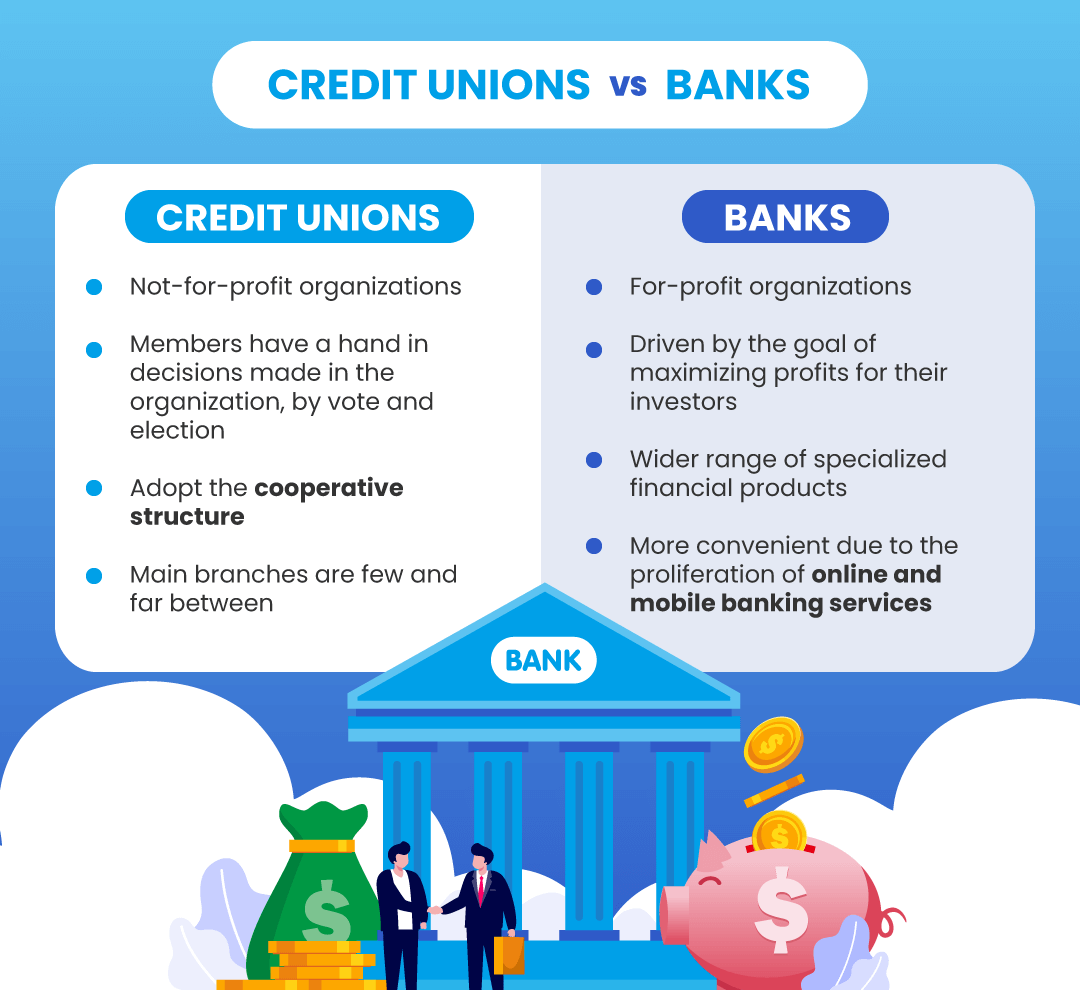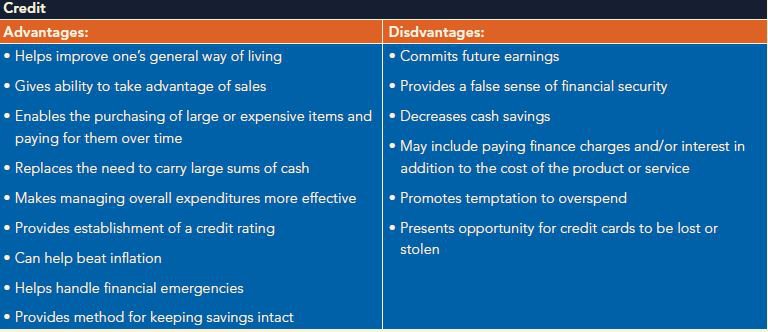The Ultimate Overview to Comprehending Cooperative Credit Union

Credit score unions stand as special monetary entities, rooted in concepts of shared assistance and member-driven operations. As we browse through the complexities of credit report unions, an insightful trip awaits to shed light on these member-focused institutions and just how they vary from standard financial institutions.
What Are Lending Institution?
Lending institution are member-owned banks that use a variety of financial services to their members. Unlike conventional banks, credit score unions run as not-for-profit organizations, indicating their primary focus gets on offering their participants instead of making best use of revenues. Members of a cooperative credit union commonly share a typical bond, such as benefiting the same company, coming from the same area, or belonging to the same company.
One of the key benefits of credit report unions is that they often offer higher rate of interest rates on interest-bearing accounts and lower interest rates on fundings compared to banks. Federal Credit Union. This is since lending institution are structured to benefit their participants directly, enabling them to hand down their revenues in the type of much better prices and less charges. In addition, credit score unions are understood for their customized customer care, as they focus on building partnerships with their participants to comprehend their unique economic demands and goals
Background and Development of Credit History Unions
The roots of member-owned economic cooperatives, understood today as cooperative credit union, trace back to a time when areas looked for alternatives to standard banking organizations. The idea of lending institution come from in the 19th century in Europe, with Friedrich Wilhelm Raiffeisen commonly credited as the pioneer of the participating banking activity. Raiffeisen established the first identified lending institution in Germany in the mid-1800s, highlighting neighborhood assistance and self-help concepts.
The advancement of lending institution proceeded in North America, where Alphonse Desjardins developed the very first lending institution in Canada in 1900. Soon after, in 1909, the initial united state lending institution was created in New Hampshire by a team of Franco-American immigrants. These very early lending institution operated the fundamental principles of shared aid, democratic control, and participant possession.
Gradually, credit rating unions have actually grown in appeal worldwide due to their not-for-profit framework, focus on offering participants, and supplying competitive financial products and services. Today, lending institution play an essential role in the economic sector, giving community-oriented and accessible banking options for services and individuals alike.

Subscription and Qualification Requirements
Subscription at a cooperative credit union is commonly limited to people satisfying specific qualification requirements based on the institution's starting principles and regulative needs. These criteria typically consist of factors such as geographic location, employment status, membership in certain companies, or association with particular teams. Cooperative credit union are understood for their read community-oriented strategy, which is reflected in their subscription demands. Wyoming Credit Union. For instance, some lending institution may only serve people who live or function in a certain location, while others may be customized to workers of a particular company or participants of a particular organization.
In addition, credit report unions are structured as not-for-profit companies, indicating that their key goal is to serve their members as opposed to produce revenues for shareholders. This concentrate on member solution frequently translates right into more individualized focus, lower costs, and affordable passion prices on cost savings and finances accounts. By meeting the qualification requirements and ending up being a participant of a cooperative credit union, people can access a variety of financial product or services customized to their details demands.
Solutions and Products Provided
One of the key aspects that establishes debt unions apart is the diverse array of economic services and products they supply to their members. Credit score unions commonly supply conventional banking solutions such as financial savings and inspecting accounts, loans, and credit cards.
In addition, cooperative credit union frequently offer practical online and mobile financial options for members to easily manage their funds. They might provide perks such as common branching, enabling participants to access their accounts at other lending institution across the country. Some lending institution also offer insurance products like home, auto, and life insurance to aid participants safeguard their possessions and loved ones.

Benefits of Financial With Credit Report Unions
When thinking about financial establishments, discovering the benefits of banking with credit report unions reveals distinct benefits for members seeking personalized service and affordable prices. Unlike big financial institutions, credit unions are member-owned and focus on building strong partnerships with their members. Overall, financial with a debt union can supply a much more individualized, cost-effective, and member-centric financial experience.
Conclusion
To conclude, cooperative credit union stick out as member-owned banks that prioritize serving their members over making the most of earnings. With origins dating back to 19th century Europe, credit score unions adhere to principles of shared aid and member possession. They use an array of monetary services and items, consisting of conventional banking solutions, investment options, and competitive rate of interest. Membership eligibility requirements are certain and show a community-oriented method, providing customized customer support and a member-centric monetary experience.
Credit scores unions are member-owned monetary establishments that use a variety of financial services to their members. The concept of credit unions stem in the 19th century in Europe, with Friedrich Wilhelm Raiffeisen usually attributed as the pioneer of the cooperative banking activity.The advancement of credit unions continued in North America, where Alphonse my sources Desjardins established the first credit history union in Canada in 1900. Credit unions normally offer typical financial solutions such as cost savings and examining accounts, fundings, and credit report cards.When thinking about monetary establishments, discovering the advantages of banking with credit score unions discloses special advantages for participants looking for tailored service and affordable rates.